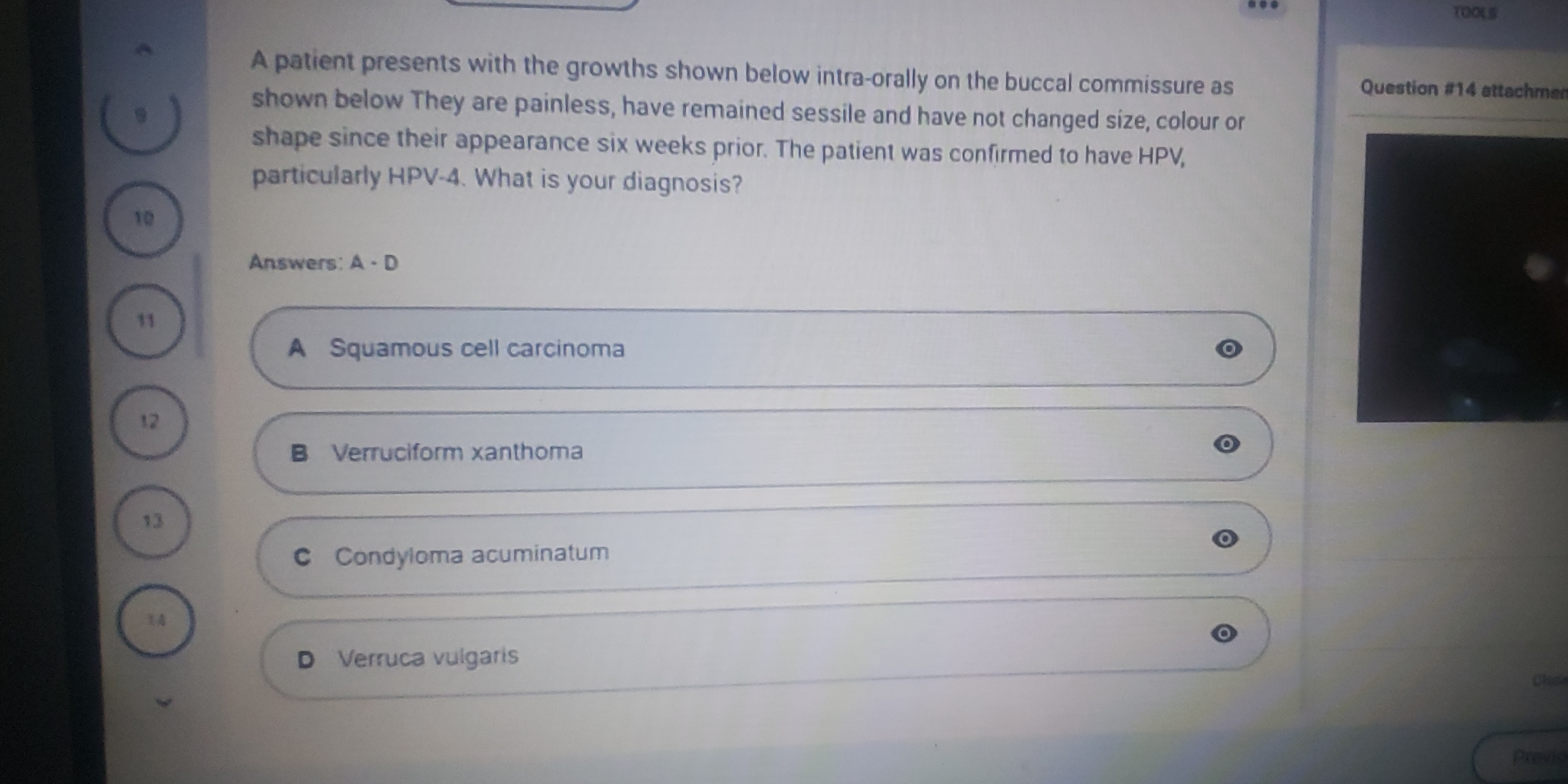A patient presents with the growths shown below intra-orally on the buccal commissure as shown below They are painless, have remained sessile and have not changed size, colour or s... A patient presents with the growths shown below intra-orally on the buccal commissure as shown below They are painless, have remained sessile and have not changed size, colour or shape since their appearance six weeks prior. The patient was confirmed to have HPV, particularly HPV-4. What is your diagnosis?

Understand the Problem
The question is asking to diagnose a patient based on the provided clinical description of the growths in the mouth, particularly in relation to HPV-4. This requires an understanding of oral lesions and their associations with HPV.
Answer
Verruca vulgaris
The final answer is Verruca vulgaris.
Answer for screen readers
The final answer is Verruca vulgaris.
More Information
Verruca vulgaris, commonly known as a common wart, is a papillomatous lesion often caused by HPV types 2 and 4, matching the intraoral, sessile growth described.
Tips
A common mistake is to think HPV only causes condyloma acuminatum, but HPV types like HPV-4 can lead to verruca vulgaris.
Sources
- HPV in the mouth: Symptoms, causes, and treatment - medicalnewstoday.com
- HPV-Related Papillary Lesions of the Oral Mucosa: A Review - pmc.ncbi.nlm.nih.gov
AI-generated content may contain errors. Please verify critical information